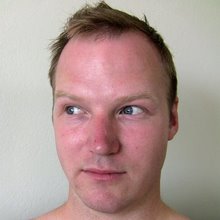A short recap (or an update/introduction to those who don't know me all that well):
- August 2005: Returned to Trondheim, Norway from M.Sc. fieldwork in Sri Lanka
- June 2006: Turned in and defended the thesis ("Making a Home Away from Home - On Up-country Tamil Identity and Social Complexity at a Sri lankan University")
- 2006-2007: Held part-time teaching position at NTNU
- July 2007: Bought an appartment with Silje
- October 2007: Ella Leona was born
- November 2007: Took up position as PhD Research Fellow at NTNU
- March 2008: Married Silje
- July 2008: Arrived in St. Vincent along with Silje and Ella to do fieldwork for my doctoral thesis
Fairtrade is getting to be a big thing - no longer easily dismissed as niche markets. The estimated total retail value of Fairtrade certified products almost tripled from € 832 million in 2004 to € 2,381 million in 2007. The annual growth in sales has been around 40 % for the past five years (FLO-I). This explosive growth occurs while the WTO and champions of neoliberalism are continuing to push for what they see as fair trade, that is free trade. In the Caribbean context this is felt severely by the marginal banana farmers who are losing preferential access to European markets as the WTO demands an end to such practices. The WTO has ruled that the tariffs leveled by the EU on non ACP banana-producing countries is unfair, which means that the American based multinationals Dole, Chiquita and Del Monte, who already control most trade in bananas and who get their bananas from the larger and more effective Latin-American banana plantations will grab even larger market shares. The household based Caribbean banana farms can never compete with these supersized plantations. Much as a result of the Banana wars (the term used to refer to the long-lasting disagreement between the EU on the one side and Latin American producers of dollar bananas and the US on the other. For recent developments, see e.g. here) Vincentian farmers started seeking Fairtrade certification, seeing it as the only way to stay in business. Today the entire banana industry of the island is switching to Fairtrade in order to stay afloat.
I am here to see how this is working out. But rather than doing an impact study on Fairtrade per sé, I am interested in Fairtrade as one example of standardisation of agricultural practices. Another example, of course, is organic farming, not practiced here now (but perhaps sometime in the future). There are other standards as well, such as GlobalGAP, and then there are EU regulations. There are in fact heaps of people who directly or indirectly want a say in how bananas (and other agricultural products) are produced and my task is to attain some idea on how all these demands are felt and dealt with by the farmers themselves. That is the short version, anyway.
Before wiping the dust off this blog I re-read the last post I wrote in Sri Lanka. So much has happened since then, in my life and in the lives of the students I learned to know there, and I have still not been able to go back for a visit. In fact, I planned to do parts of this research on Fairtrade tea estates in the Sri Lankan up-country, but came to realize that the main reasons I had for doing that were not professional but personal. And with Sri Lanka slipping back into war, taking Ella and Silje there began to seem like a poor idea. I decided to rewrite my project and do the entire thing in the Caribbean. It was a decision saturated with guilt just for being in the position to choose in the first place. It was another tentacle of the Kilopus letting go, and it is with some reluctance I am preparing to wrap myself to this island in stead. Yet, here we are, and updates on our progress will follow. Stay tuned!




No comments:
Post a Comment